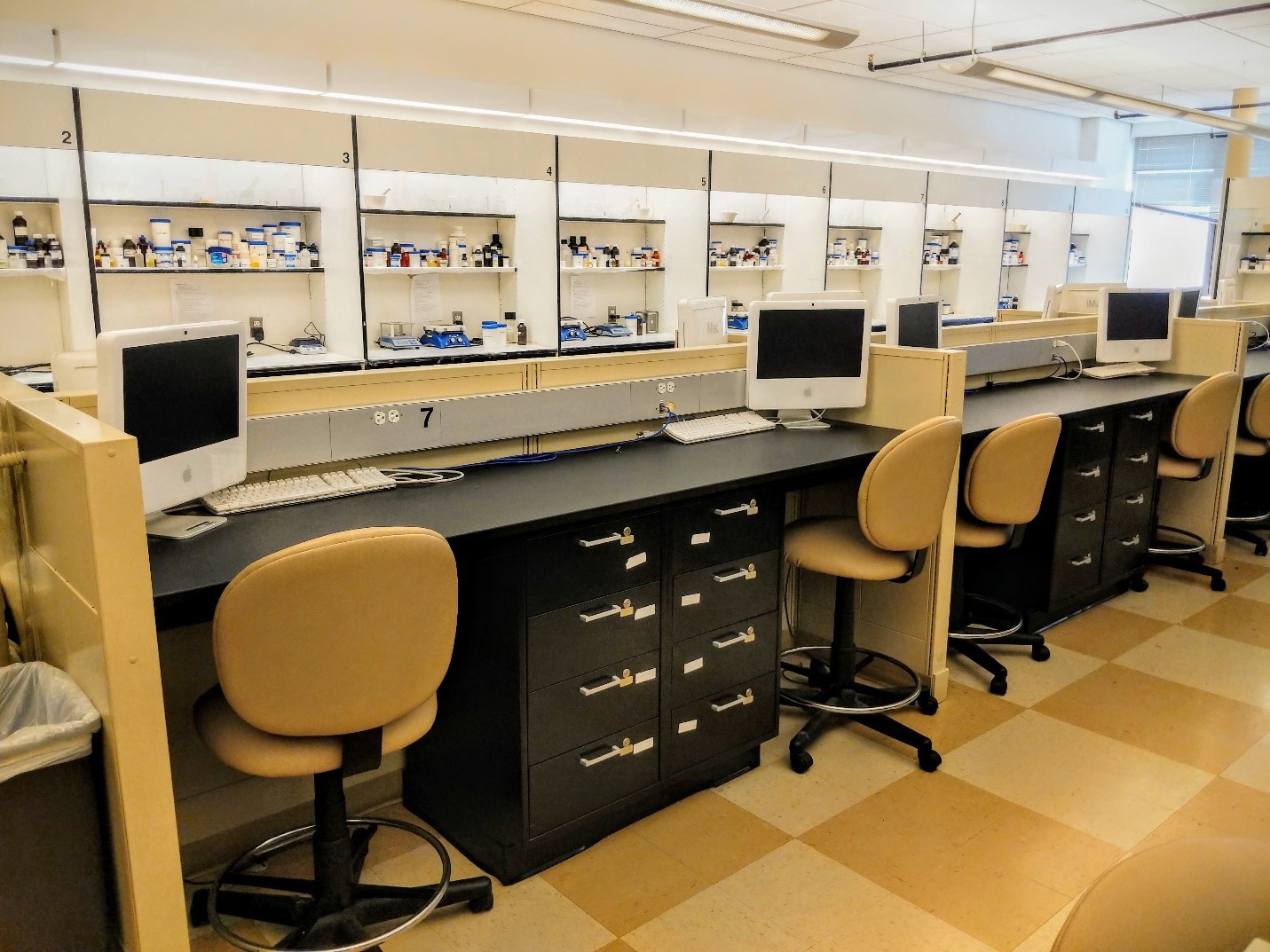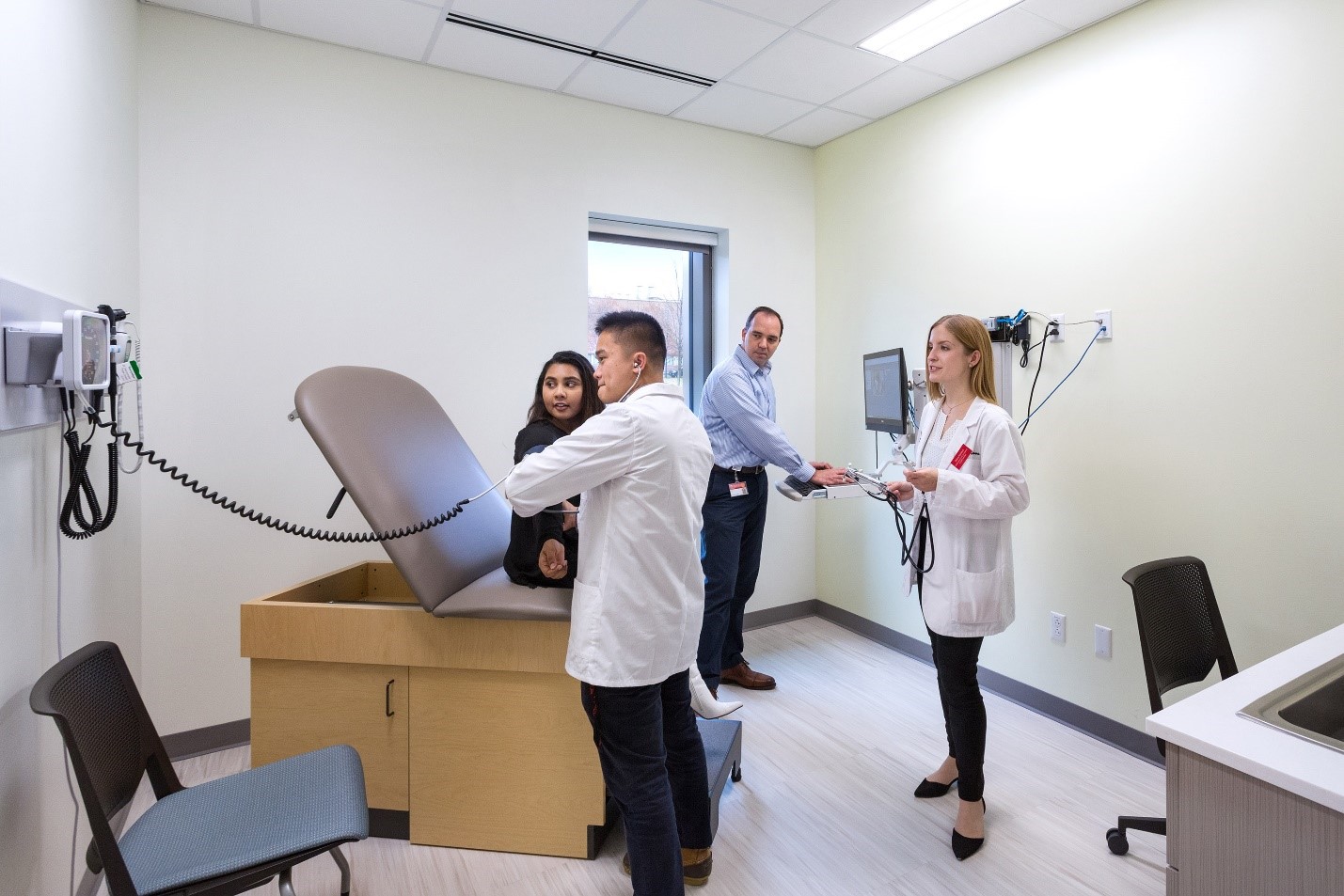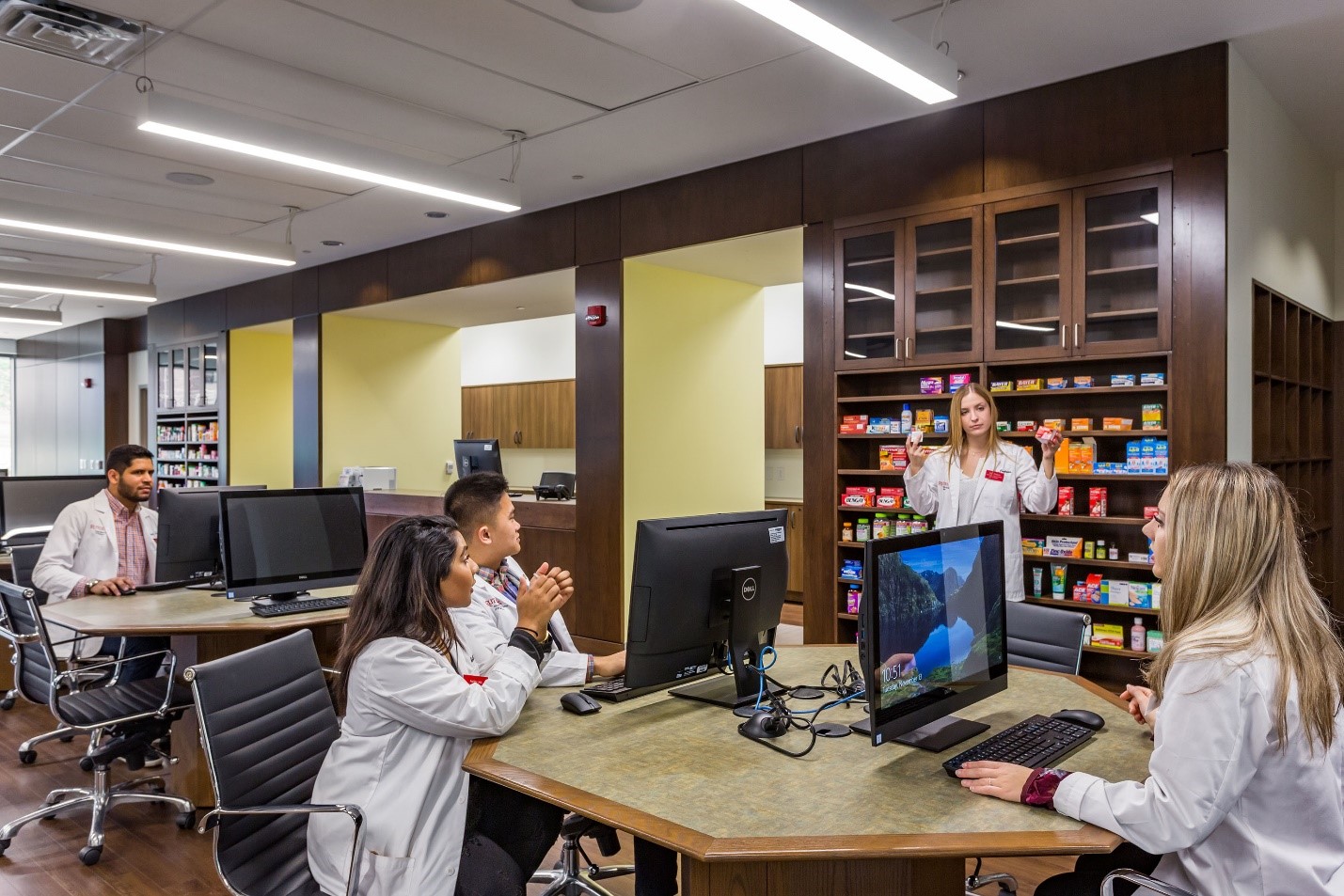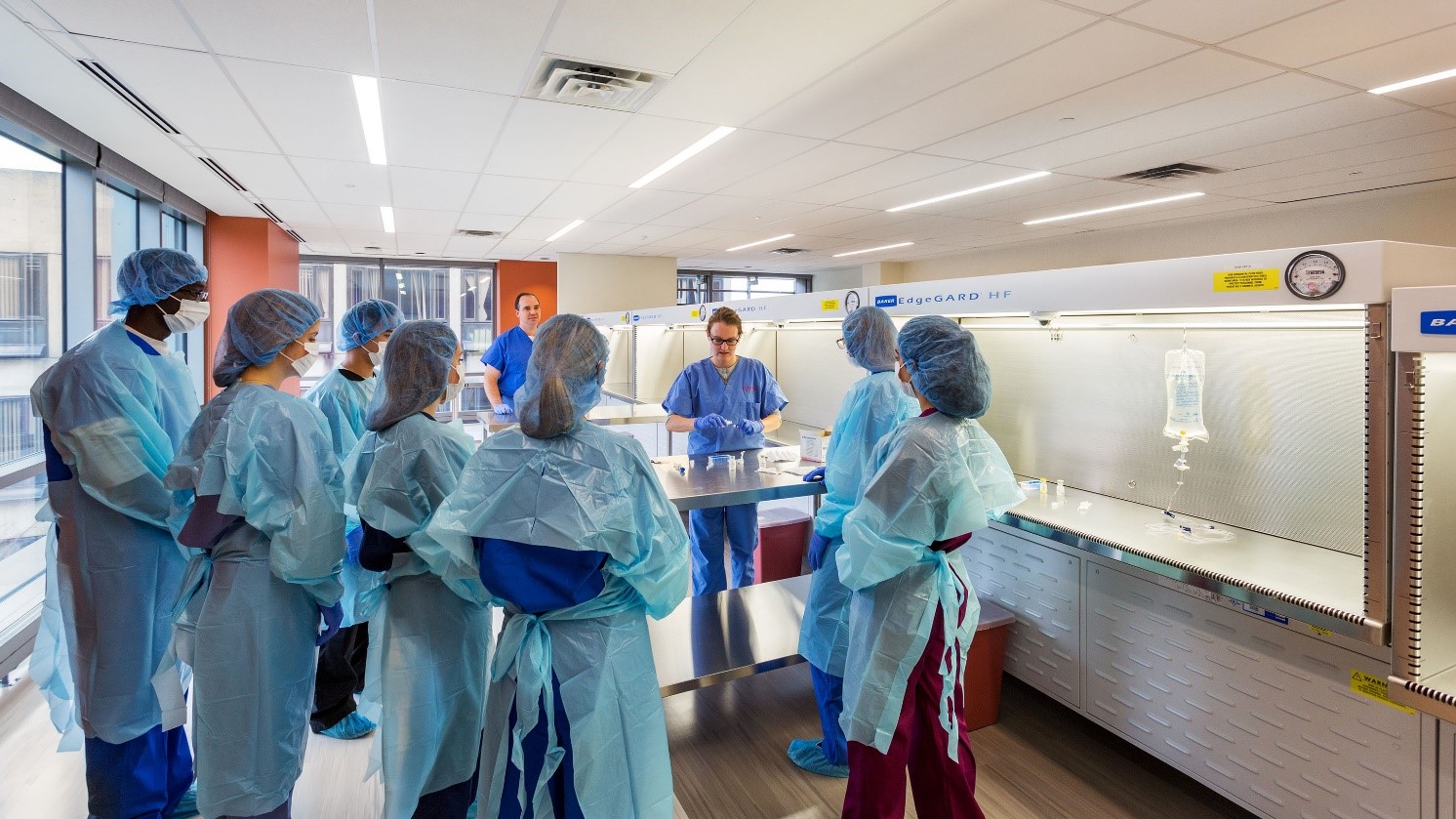Ernest Mario School of Pharmacy Building Addition
Our state-of-the-art facility allows students to explore the dynamic state of healthcare and the changing role of the pharmacist as a primary healthcare provider. The addition to the School of Pharmacy triples pharmacy practice teaching space and increases the overall footprint of the Pharmacy School by 50%.
In an ever-changing healthcare universe, the Ernest Mario School of Pharmacy prides itself on providing a state-of-the-art, modern curriculum. As a leading educational institution that offers a rich environment in research, clinical practice, and strategic healthcare partnerships that enhance pharmacy practice models, the expansion of school facilities was completed to allow students to explore the dynamic state of healthcare and the evolving role of the pharmacist as a primary healthcare provider.
Download Architectural Renderings >>

The Novartis Pharmaceuticals & The Bristol-Myers Squibb Auditoriums – Located on the first floor, the two, 225 seat auditoriums will be equipped with state-of-the-art technology to educate the next generation of pharmacists. These auditoriums will allow for an entire class of Pharmacy students to be taught right here at the Ernest Mario School of Pharmacy, something that has not been possible in recent years.
Simulation Areas
Our various simulation areas offer students the opportunity to experience and be immersed in a variety of pharmacy practice environments in a safe and convenient setting, starting early in their academic journey. Our curriculum carefully sequences experiences across our simulation areas to assure tiered development of skills and knowledge, development of practice acumen, and professional identify as integrated professionals in today’s healthcare teams. The simulation modality is flexible, allowing faculty to target specific learning objectives, creating a more efficient and targeted use of classroom time.
Acute Care Simulation Suite
Whether designed to represent the intensive care unit, emergency department or other hospital or institutional setting, students are immersed in acute care pharmacy practice in these suites. Students develop skills and practice techniques needed to manage complex and high risk patients Programs engage our students in simulations developed by experienced pharmacy practitioners who integrate both clinical and environmental challenges often faced in today’s practice environment. Small group sizes and expert debriefing by faculty allow students to analyze and synthesize their thoughts around complex clinical cases. Faculty provide debriefing after simulation scenarios to support our students as they develop their own perspectives on teamwork and become competent and confident in their roles as pharmacists in the modern healthcare setting.
CVS pharmacy™ Pharmaceutical Compounding and Prescription Dispensing Lab
Simulation begins in the first professional year, when students learn to prepare solid dosage forms of medications in the drug compounding lab. Basic compounding of non-sterile dosage preparations relies on weighing, measuring, accuracy, and packaging of the medications to exact specifications as specified in the prescription.
Ambulatory Care Clinic
Across several semesters, students develop carefully sequenced communication, assessment and practice skills to manage patients in our Ambulatory Care Clinic as they work with standardized patients. With 17 exam rooms, debriefing, a mock electronic health record, and lecture spaces the suite supports a full spectrum of learning and skills development. Faculty develop and use patient cases and objective structured clinical examinations (OSCEs) to drive home and assess learning objectives.
Mannino Community Pharmacy (MCP) Simulation Lab
The Mannino Community Pharmacy, generously supported by a donation from the Mannino family, beautifully incorporates design elements from the family pharmacies of this Rutgers’ alumni family, creating a real-life community pharmacy environment for students. Students work in small groups using the latest technology supporting development of expert patient education and clinician research skills.
The area provides access to various distinct aspects of community practice, including a mock dispensing/counseling counter, workstations that can be used to navigate simulated electronic medical records in a cloud-based platform, telemedicine/telepharmacy, and over-the-counter products commonly found in the community pharmacy setting.
Parenteral Sterile Products (PSP) Laboratory
In the mock sterile laboratory, students learn the increasingly complex USP standards and practices shaping parenteral product preparation, and they develop a robust appreciation of the risks inherent in sterile compounding. After they learn the standardized processes, they apply their knowledge and skill sets to ensure patient benefits and reduce risks of contamination, infection, or medication compounding errors. Students work in real laminar hood systems with inert substances to prepare mock compounds of IV drugs, total parenteral nutrition (TPN), and chemotherapy.
Ceremonial Beam Signing & Raising
Over 600 students, faculty, staff and alumni signed an eight foot steel beam that is part of the building construction a significant piece of history for the School. Check out the video which shows the beam’s final placement.
View Ceremonial Beam Signing & Raising >>
We need your support!
Be a part of the expansion of the Ernest Mario School of Pharmacy building. There are still a few naming opportunities available within the building to create a legacy and to maximize your giving, find out if your company participates in matching your gift!
By making a gift of $10,000 or above, your name will be showcased on the donor wall in the main atrium.
Give today to support the future of the Ernest Mario School of Pharmacy. For more information, contact:
Kerryn Loesner
Director of Development
848-445-6248.
Support Ernest Mario School of Pharmacy >>






